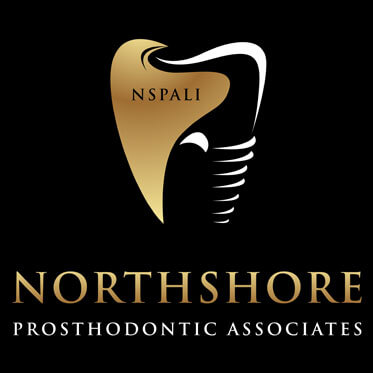TMJ Treatment in Manhasset, Woodbury & NYC
North Shore Prosthodontic Associates offers treatment for TMJ disorder at our 3 convenient New York locations. To learn more or to schedule an appointment, call:
Manhasset, NY office at 516-482-5416
Woodbury, NY office at 516-364-2333
New York, NY office at 516-482-6198
What Is TMJ Disorder Treatment?
The temporomandibular joint (TMJ) is similar to a sliding hinge that connects your jawbone to your skull. Pain in the jaw joint and the muscles surrounding it can signal TMJ disorder. There are different causes, of course, which need to be diagnosed by your dental team. Only then can the proper treatment plan be implemented.
Common treatments for TMJ disorder include:
- Self-managed care, such as eating soft foods, using ice packs, avoiding extreme jaw movement.
- Nonsurgical treatments, such as anti-inflammatory medications, Botox injections, or stabilization splints.
Signs You Need TMJ Disorder Treatment
Pay attention to these signs that you may have TMJ disorder. If you suffer from any of them, you may want to seek treatment from your dentist.
- Clicking, popping, or grating sounds
- Muscle pain felt in the cheeks and temples
- Soreness in the joint
- Tenderness in the jaw
- Difficulty chewing or pain while chewing
Why Choose North Shore Prosthodontic Associates?
At North Shore Prosthodontic Associates, we understand how painful and disruptive TMJ disorder can be and that’s why we work to address any issues or concerns our patients have. And, by staying on top of the most effective diagnostic tools and treatment, we are able to offer relief from TMJ disorder without any invasive procedures.
Our commitment is to the comfort of our patients.
FAQs
What is the main cause of TMJ disorder?
There are many different causes of TMJ disorder, but the most common cause is excessive strain on the jaw joints and surrounding muscles. Bruxism is often the culprit.
Will TMJ disorder just go away?
If the symptoms are mild, they usually don’t last long. Sometimes it can come and go. Though chronic TMJ disorder can make doing basic things difficult, such as talking and eating.
Does sleeping help with TMJ?
A good night’s rest can help relax the joint and relieve pain. After all, the body uses sleep to repair itself. However, for those with TMJ resulting from bruxism, for instance, sleep may amplify the problem.
How long does it take TMJ disorder to go away?
Of course it depends on the cause of the disorder, but usually with rest and care, the symptoms can go away in a week or two.
Want to learn more? Ready to schedule an appointment? Call one of our convenient locations.
Manhasset, NY office at 516-482-5416
Woodbury, NY office at 516-364-2333
New York, NY office at 516-482-6198
